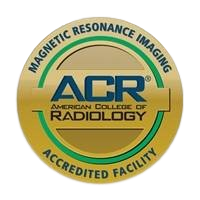457 Lake Cook Road (Deerfield Park Plaza)
Deerfield, IL 60015
Email Us:
Email us directly [+]
Fax: (847) 291-9362
MRI Frequently Asked Questions
-
What is MRI and how does it work?
MRI stands for Magnetic Resonance Imaging. An MRI scanner allows physicians to look inside the body without using surgery, harmful dyes, or X-rays. The MRI scanner uses magnets, radio waves and computers to produce very clear pictures, or images, of the human anatomy. MRI images depict soft tissue anatomy far better than any other diagnostic imaging equipment. The fundamental discovery upon which MRI is based was made by Raymond V. Damadian, M.D. in 1971. Dr. Damadian built the world’s first whole-body MRI scanner in 1977, and his company, FONAR Corporation, introduced the world’s first commercial MRI scanner in 1980. Fonar also manufactures the Upright MRI that we use in Deerfield.
-
Can anybody have an MRI scan?
No. For some people, an MRI can be dangerous, even fatal. If you have a cardiac pacemaker, you should not have an MRI. It can be fatal. There may be certain parts in the pacemaker that may be adversely affected by the magnetic field of the MRI scanner, causing the apparatus to malfunction or cease operating. Another potential danger is an aneurysm clip in the brain. Some aneurysm clips are MRI safe; some aren't. You must check with the surgeon who installed the clip to be sure the manufacturer has tested it and found it to be MRI safe. Other Potential Dangers include: Neurostimulators Heart Valves Metal Implants Drug Infusion Devise/Pump Ear Implants Hearing Aid (The MRI can damage it.) Inferior Vena Cava filter Metal Objects in Eyes Surgical Staples or Wires Bone or Joint Replacements Metal Plates, Rods, Pins or Screws Contraceptive Diaphragms or Coils Permanent Dentures Penile Implants Shrapnel Pregnancy Vascular Coils and Filters If any of the above applies to you, it may be dangerous for you to have an MRI exam. Be sure to make the technologist and staff at the MRI center aware, and also tell the doctor who prescribed the exam. They will be able to tell you if it is safe for you to have the MRI exam. In most cases you will be able to have the scan, but please leave that decision to the professionals. Please Note: Anyone accompanying the patient to any area near the MRI scanner is subject to the same dangers.
-
What do I have to do to prepare myself for an MRI?
The first step is to be certain that it is safe for you to have an MRI scan (see previous question). Preparing for an MRI exam is easy. Unless your doctor tells you otherwise, you may take your medications as usual. There are no food or drink restrictions. The only unusual preparation for an MRI scan is that all removable metallic objects must be left outside the scanning room. These include jewelry, keys, watches, coins, eyeglasses, removable hearing aids, dentures and prosthetic devices. Credit cards should not be brought anywhere near the MRI magnet. Since they are magnetically coded, the MRI’s magnet, which is very powerful, can easily corrupt the information stored on them.
-
Should I avoid eating certain things before the MRI?
There are no food or drink restrictions.
-
What should I bring with me when I come for my MRI?
The prescription from your doctor
Your insurance card
Your driver’s license
Your Patient Information sheet
Your Safety Form
-
What will the MRI staff want to know about me?
The receptionist and MRI technologist will ask you questions about your medical history. They will check to see if it is safe for you to have an MRI scan. The receptionist will also ask you for certain insurance information, so please remember to bring your insurance card with you.
-
How should I dress? Will I have to wear any special clothing?
When it comes to how to dress for an MRI exam, the main thing to realize is that metal can degrade or ruin MRI pictures. Therefore, you should wear comfortable, loose fitting clothing (no dresses or skirts for modesty reasons), but keep in mind that metal must be avoided in or near the region where you are going to be scanned. Here are some examples: If you are going to have a scan of the lower spine (lumbar spine) or the abdomen area, don't wear clothing or under-clothing that has metal on it in that area. For example, a body suit that has snaps in the crotch, or pants with fasteners or a zipper will cause a problem. Sweats with no eyelets would be fine. Also, body-pierced jewelry in that region must be removed. If you are having a scan in the head or neck area, remove all makeup (some makeup has metallic particles in it) and all metallic items such as hair clips, earrings, and facial jewelry, including body-pierced items. Notify the technologist if you have any facial tattoos, such as eyeliner or eyebrow tattoos. If you are having a scan in the chest area, or upper torso, avoid clothing and under-clothing with metal hooks or fasteners. For example, a sweatshirt with metallic decorations or body-pierced jewelry in that region will cause a problem. Don't worry. If you don't have suitable clothing, we will give you a gown.
-
What will happen?
Depending on the type of scan your doctor ordered, the MRI technologist may wrap a special belt (actually an antenna) around the region of your body that is to be scanned. If you are having a head scan, your head will rest in a special fixture. Once you are comfortably positioned, the technologist will start the scan. At that point, all you have to do is be as still as you can until the MRI exam is over – the more still, the better. The reason you have to lie still is that movement blurs the MRI images. Depending on what your doctor ordered and the area being scanned, the procedure will take between 15 and 45 minutes. The MRI technologist will be able to tell you how long it should take. You won't feel anything, but you will hear some low-volume, intermittent, rumbling noises throughout the scan. These sounds are normal. Our scanners are very quiet in comparison to "tunnel" MRI scanners whose sounds are sometimes described as firing machine guns or rattling garbage cans. A microphone will be placed near you so you will be able to speak to the staff at any time during the exam. If you like, someone can be with you in the scanner room, provided it's safe for the person to be there. (A visitor is subject to the scanner's magnetic field too. So please make sure it is safe for the visitor to be in the scanner room). It is common for a parent to stay with a child. In fact, we encourage it. Smaller children being scanned can sit comfortably on a parent’s lap during the process.
-
When will I find out the results?
You won't find out the results at the time of the scan. The results of your MRI examination will be faxed and/or mailed directly to your doctor, normally within 24 hours. In turn, your doctor will explain them to you. Technologists are not qualified to interpret MRI examinations, nor are they allowed to, so please don't ask them for their opinions.
-
Is transportation available?
If a patient is unable to get to the scanning center on his/her own, special arrangements can be made. If you need transportation, please call us. We will do our best to assist you.
-
Does it hurt? Will I feel anything?
You won’t feel a thing. Unlike many other MRI scanners, ours are quiet, comfortable and non-claustrophobic.
-
Will my insurance cover the cost of the MRI?
Most likely. We accept Workers’ Compensation cases, Medicare, auto accident cases, attorney liens, and many commercial insurance plans and HMO’s. When you call to make your appointment, ask if your insurance company will pay some or all of the cost.
-
Do I need a doctor’s prescription for an MRI?
Yes. Be sure to bring it with you when you come for your MRI exam. You can download a prescription form on our website.
-
Do I have to remain very still?
Yes - as still as you can. The more still you are during the scan, the better the MRI image will come out. As stated previously, movement causes blurring in the picture. If you move too much, the pictures will be too blurry for the radiologist to see what he or she needs to see, and you will have to reschedule for another MRI exam.
-
How long will it take?
That depends on what part of the body is to be scanned and whether or not your doctor has ordered any special or extra scans. Normally, the entire exam takes between 15 and 45 minutes.
-
Can someone else stay with me in the MRI scanner room?
Yes. Since our MRI scanners are open, there is ample space for someone to accompany you into the scanner room, and even hold your hand during the scan. Warning: The person accompanying the patient will be exposed to the scanner's magnetic field just as the patient is, so please make sure it is safe for the visitor to be there.
-
I’ve heard that some MRI scanners induce claustrophobic reactions. Do yours?
Our scanners are all Open MRI’s. There are no tunnels, no tubes. Ours are quiet, comfortable and non-claustrophobic. Plus, you can watch TV during the scan and actually hear it!
-
Will I be able to drive after I have the exam?
Yes. The MRI has no known physiological side effects. However, if you have taken a sedative, there may be some restrictions.
-
Will I be getting an injection?
Occasionally an injection will need to be given. In certain situations, it may be necessary to inject a patient with a contrast agent in order for the proper diagnosis to be made. Your referring doctor will make that decision. In our experience, approximately 5 to 10 percent of patients require a contrast agent. For example, MRI exams of regions containing scar tissue from a previous surgical procedure are often best evaluated with the aid of a contrast agent. The contrast agent is injected intravenously into the arm. The procedure is performed by a qualified healthcare professional. Side effects are minimal (less than 1%). If you require the contrast agent, you will be made fully aware of possible side effects prior to the injection.
-
Is it OK to have an MRI if I’m pregnant?
If you are pregnant or think you might be pregnant, you must first consult with the physician before you have an MRI scan. You must also inform the staff at the MRI scanning center. It has not been shown that MRI is harmful to unborn children. However, if you choose to have the MRI, you will be asked to sign a consent form, which must also be signed by your OBGYN.
Do you have a question about our service?
Hopefully, the FAQ below will help with any queries about our services or what to expect when we start to work for you. But, of course, if you don't find your answer here – feel free to directly reach out to us. We'd be glad to bring the clarity you need.

Follow UpRight MRI of Deerfield on Facebook
To see our latest news, updates or to get to know us more, we welcome you to follow along our journey in Facebook.
CONTACT DETAILS
Phone: (847) 291-9321
Address: 457 Lake Cook Road (Deerfield Park Plaza) Deerfield, IL 60015
Email: info@uprightmrideerfield.com
Business Hours
- Mon - Thu
- -
- Friday
- -
- Saturday
- -
- Sunday
- Closed
All Rights Reserved | Upright MRI of Deerfield | Website designed by NorthShore Loyalty


